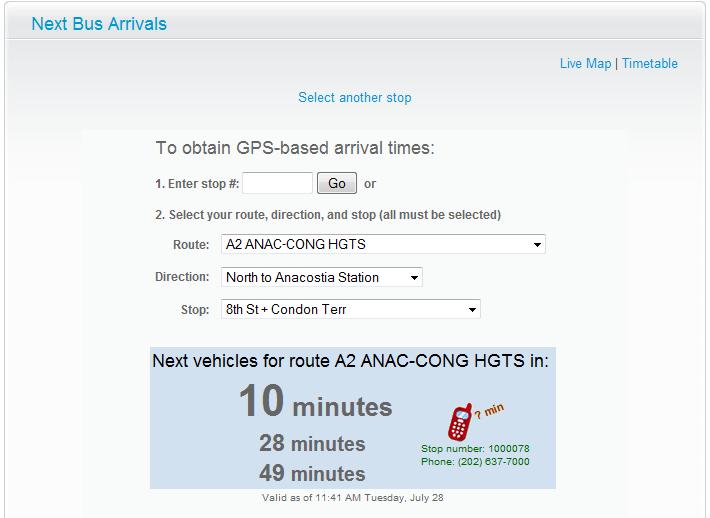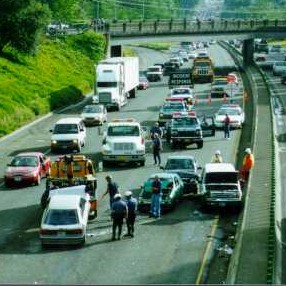For some reason, once our children hit their teenage years they can become rebellious and obstinate, rejecting the care and oversight of their parents. Not all teens fall into this trap of our culture, but even the most well behaved teen is going to get into some trouble now and then as they experiment with their new found freedom and grow into mature adults. We all make mistakes on our road to maturity.
GPS tracking can be a useful tool in the hands of a concerned or watchful parent – and it doesn’t have to be used only to monitor the behavioral issues a teenager may be expressing. These devices can help empower parents to give their teens even more freedom once they become aware of how careful, law abiding, and respectful their teenagers are. The information gathered by a device could also aid a parent in making an informed decision about about dangers presented by poor driving habits, skipping school, or the neighborhoods that life can take their kids into. Despite their larger size, high mental capabilities, and maturing bodies, teenagers are still children in many respects and parents still feel a degree of responsibility to keep their child safe.
If you have a teen with behavioral problems or you just like to know where your child is for safety’s sake then there are some real solutions for you and your family that can included GPS tracking. A solution’s success for your situation will undoubtedly depend on your own specific needs and desires, so be sure that you think about your solution carefully before purchasing a device. These things can be expensive and you don’t want to waste money on something when other relational steps could be taken to solve the problem.
In general, there are three main categories that any tracking device will fall into – car tracking, cell phone tracking, and covert tracking.
Tracking Your Teen’s Car With GPS
Learning to drive has long been a “coming of age” event for teens and driving represents a significant portion of their travel time. If your teen is anything like the one’s I’ve met then as soon as they are able they are hounding their parents for the keys at every opportunity. They want to drive to and from school; to drive to their friends house; to go out to the movies. They want to go out on dates. They even want you to pay for gas!
What they are essentially after is the freedom to do what they want when they want to. This is a pretty normal thing for teenagers to experience since they are just at the beginning stages of becoming an adult and will try to emulate many of the things adults can do with their freedoms.
Many teens even have their own car these days; given to them by parents who enjoy the freedom that having a driving, mobile teen provides. There is nothing inherently wrong with this, but it can create some challenges in keeping tabs on your kid if they are (secretly) rebellious. In some ways, when a teen has a car it becomes much harder to know where they are, even if they are obedient and well behaved, and can create a safety nightmare for parents prone to worry.
How Does GPS Tracking A Car Work?
Tracking a car is fundamentally no different from tracking anything else with GPS, except that there are devices that have been manufactured and marketed specifically for this purpose. These devices are sometimes referred to as data pushers or real-time tracking devices. They work by gathering and calculating location data from the Global Positioning Satellites orbiting the earth and transmitting that data via radio or cellular frequencies. Your tracking provider takes this data, makes it look pretty, and makes it available to you from a (generally) web-based interface.
Your GPS device will be able to report the vector of the vehicle (both speed and direction). Many companies will also keep the data sent to it by the tracker and organize it into a useful “history” report. A driving “history” can be very helpful to a parent trying to verify a teen’s story about their whereabouts or driving practices. They won’t be able to so much as speed without you knowing it! And that is a big deal when it comes to keeping them safe.
What Are The Limitations On Tracking A Teen By Car?
There are some limitations to this method of tracking. The first is that it only works on teenagers who are legally eligible to drive. In most states this is at the age of 16 1/2 while in others it can be as old as 18. By the time they are 18 most teens should be sufficiently mature to make good decisions about how fast they drive, who they hang out with, and what activities they participate in without their parent’s watchful eye hanging over them.
However, that does not mean that a GPS tracking device installed in the car is not going to be useful – it just might be less of a parenting tool and more and an emergency tool. It can still help you locate a stolen car. It can still help you find the location of the car in case of a medical emergency. It will still help you find the scene of a crash or a lost vehicle. It just might not be used to make sure your teen isn’t speeding.
The second limitation is that it only works when your teen is using the car. This is probably a much bigger limitation than most people realize. Cars can easily be ditched by savvy teens or sinister assailants, negating the effectiveness of the tracker for the purpose that you intended.
Imagine for a second that the teen you want to track is aware that their car has a GPS unit installed in it. They tell you that they are going over to a friend’s to hang out and watch some teen flick like Epic Movie. However, what they tell you is not really what they are going to do. They have really planned on going to a drinking party with this friend in the friend’s automobile, leaving the car with the GPS tracking unit safely at the friend’s house.
When you check up on your teen in your web-based account that provides real-time data on their whereabouts you find that the car is at the friend’s house. You breathe a sigh of relief, but your teen is out making some bad peer-to-teen choice behaviors at the drinking party and you will be none the wiser. That is where the next teen tracking device comes into play – the cell phone.
Tracking Your Teen’s Cell Phone
This is probably going to be the most useful and the most widely used method of using tracking a position of a teenager with GPS. Unlike cars, cell phones appear to be in the hands of 99% of teenagers. This is an unprecedented proliferation, but is not surprising given how useful they are for communicating between family members and for entertaining their users.
Most teens will use their phones to text friends, others will use it to take pictures, others to chat, and still others to browse the internet or update their Facebook page. But now parents can use the same cell phones that are already in their teen’s hands to track their whereabouts and keep them safe.
Tapping Into To The Power of Cell Phones To Track Your Teen
Because cellar phones are everywhere, big wigs in the telecommunications industry decided that they wanted to compete with GPS companies like Garmin, TomTom, and Magellan in the navigation market with their cell phones. They have since made some pretty significant inroads here because GPS technology and the radio positioning technology that cell phones use works off the same basic mathematical principle – trilateration.
Once that market was penetrated, cell phone providers realized that they could leverage the technology that they produced for GPS navigation for GPS tracking. This birthed specialized phones designed specifically for kids that would enable parents and law enforcement to recover missing children by tracking their cell phone.
Many cell phone providers now offer plans that let you begin to track your child’s position information. These planes also record vector information (speed and location), fulfilling one of the most important features of a car tracking device discussed above. Cell phones are generally going to be with your child at all times, thus avoiding some of the limitations of car based tracking. Cell phones have the added feature of allowing parents to verify that your child is with their phone simply by calling them up – their voice on the other end of the line is the proof.
Another great benefit is that your teen has every incentive to keep their cell phone charged and ready for use – they want to use it to talk to their friends! This means you won’t have to change the tracking device’s battery because your teenager has a very large incentive to do it for you. Its a win-win for both of you.
Cell Phone Tracking Limitations
Despite cell phone tracking’s relative superiority over car based tracking there are still some serious limitations to tracking your child in this fashion. The first is that in some circumstances – like abduction – your child is probably going to get their cell phone taken away by their abductor. This is probably the most dire of situations where you would want the tracking device to work perfectly, but because of the knowledge that cell phones can be used by the authorities to locate individuals it is probably going to be the first thing searched for and gotten ride of by an assailant.
The other limitation is that cell phones do not always receive signals from cell towers. This is particularly problematic in remote areas where cell phone penetration is less established. If a phone is unable to make a connection to its network then any location data gathered by the phone cannot be communicated to you, the parent. The data may be still be stored on the phone, but it does not do you any good until you can get your hands on it.
In the end though, the cell phone is probably the cheapest, easiest, and most reliable of all the tracking options available to parents on the market today. It should definitely be a strong contender in your quest to use GPS tracking for your teen.
Tracking Your Teen With Covert GPS
The last method I am aware of is using more covert methods of tracking your teen. This is different than tracking the car they use or utilizing their cell phone to keep tabs on them. While you may track them in these ways without them knowing (i.e. in a covert way) I like to think of covert tracking as something rather different.
It is more spy-like in my mind and has more to do with sticking a GPS tracker in a shoe, or a bag, or an iPod. These types of trackers are designed specifically to avoid detection – by the person who the device is tracking or by someone who would steal the asset or abduct the assets bearer.
Covert GPS devices are small, compact, battery operated, and extremely powerful.
What Types of Covert GPS Are Available?
You’d be surprised at the large number of GPS tracking devices that fall into this category. They can range from stuffed animals to watches to shoes to jackets.  Almost anything a teenager carries can be turned into a set of watchful eyes.
When thinking about where you want to install a covert device it is important that you pick items that your teen uses every day, like shoes or a winter jacket, since these devices will have the highest probability of staying on your child no matter what happens to them.
Why Choose Covert GPS Tracking For Teens?
The only reason to go with covert devices is if your teenager they are at high risk for abduction and you want to be able to locate them quickly and efficiently. This is the situation when cell phones simply won’t do since they will be quickly destroyed by attackers.
Another good reason to use covert devices is that they can go without detection for longer periods of time – but they do suffer from battery life limitations so be careful how you use them. The last thing you want to do it so get caught while you change the tracker’s battery!
Should I Be Secret Or Open About Tracking My Teen?
Now that we have discussed some of the options that can help you keep track of your teen it is really important that we evaluate any moral problems with using GPS tracking on a teenager. Is it wrong to track them at all? If I think it is right, do I need to tell them that I am doing it or can I ‘keep it secret?’
I think that each person is going to end up answering this question differently, but my take on it is this – it is okay to track a teen without their knowledge. This is also my answer when thinking about tracking a child. It is an okay and acceptable practice given certain circumstances.
My reasons for this is threefold:
- Parents have a responsibility to ensure the safety of their child. It is even my opinion that parents are supposed to protect their children even if the child expresses a desire not to be protected. If a teen is going to engage in activity that directly affects their safety – such as speeding, drinking, doing drugs, having sex before marriage – then it is a parents obligation to take measures that help them ensure their teenager’s safety.
- Teens are still under the care of their parents. The main source of the parents obligation to their teen is that the teen still lives under the care and provision of the parent. If the teen was self-sufficient I could definitely see an argument for restricting a parents right to know the location of a child at all times. However, this is often not the case for children between the ages of 13 and 18 – and is often not even the case for kids between 18 and 22. They often still rely heavily on their parents for financial and moral support.
- Many teens do not own their cell phones and cars. At the very least you have to give parents the right to track their assets, right? The car is the property of the parents so they should know where it is and how it is being driven. The cell phone is paid for and provided by the parents, so they have a stake in where it is and how it is treated. The fact that they are also able to track their teen’s location is merely a consequence of the teen using something that the parent owns. If they want to avoid this type of tracking then they should buy their own phone and car.
With all that said, I don’t think it is always in the parent’s or the teen’s best interest to keep the GPS tracking a secret. In many, many instances it will work out much better for both parties if the device is clearly explained and accounted for. Tracking teen with GPS is just a tool in the hands of parents and teenagers to make life safer for everyone – communication should always be clear and honest where appropriate. Without that, no amount of GPS tracking is going to do teens or parents any good.


